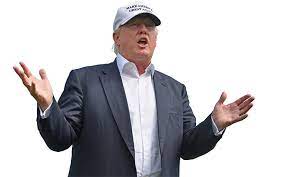Introduction
The future of education has always been a topic of heated debate, and with the tenure of President Donald Trump, opinions on the direction in which American education is heading have never been more polarized. Trump’s policies and ideals have led to significant discussions about the way students learn in schools, the role of educators, and how higher education can adapt to prepare learners for the workforce. This article aims to explore the potential implications of President Trump’s policies on American education.
Influence on Public Schools
One of the most significant changes implemented under Trump’s administration is support for school choice. This idea allows parents and families to decide which school their child will attend, whether it’s a public or private institution. The administration believes that school choice creates competition among schools, which will then lead to better educational outcomes for students.
However, critics argue that this policy may inadvertently promote segregation and inequality within the education system, with wealthier families potentially having access to more high-quality educational opportunities than their lower-income counterparts. As funding follows students to their selected schools under this policy, public schools could face budget cuts resulting in fewer resources available for teachers and students.
Impact on Higher Education
University costs have steadily risen during recent decades, making affordability a prime concern for many American families. Under President Trump, several changes have been proposed to address this issue by streamlining the application process for federal student loans and introducing caps on borrowing amounts.
One controversial change proposed by Trump’s administration has been rescinding several regulations aimed at protecting student loan borrowers. While proponents claim that this move reduces bureaucracy and simplifies processes, others are concerned that it allows predatory lenders to exploit vulnerable students further.
Additionally, significant changes have been made to Title IX policies under Trump’s tenure. These modifications have resulted in universities being required to adopt new processes when handling sexual misconduct cases, ultimately balancing the rights of both survivors and those accused. Critics argue that these policy changes may deter survivors from reporting incidents, while proponents claim they’re necessary to protect the rights of all students.
The Impact on Teachers
The party in power often impacts education professionals, and President Trump’s administration is no exception. As budget cuts force many schools to find ways to reduce costs, educators may be forced to make do with fewer resources. Additionally, the push for private school “choice” may lead to teacher layoffs in public school systems.
However, some educators view Trump’s deregulation efforts as a way to break free from bureaucracy constraints and re-focus on teaching. This could lead to innovative teaching models that can positively impact student success.
Conclusion
There are both positive and negative implications for American education under President Trump’s policies. While some argue that deregulation and school choice will encourage innovation and enhance options for families, others are concerned that these policies could exacerbate existing inequalities within the system.
Regardless of one’s political leanings, it’s crucial for educators, lawmakers and stakeholders to remain vigilant about the potential impact on multiple aspects of American education. By doing so, we ensure that our education system remains adaptable and continues to deliver quality learning experiences despite inevitable changes in political climate.



